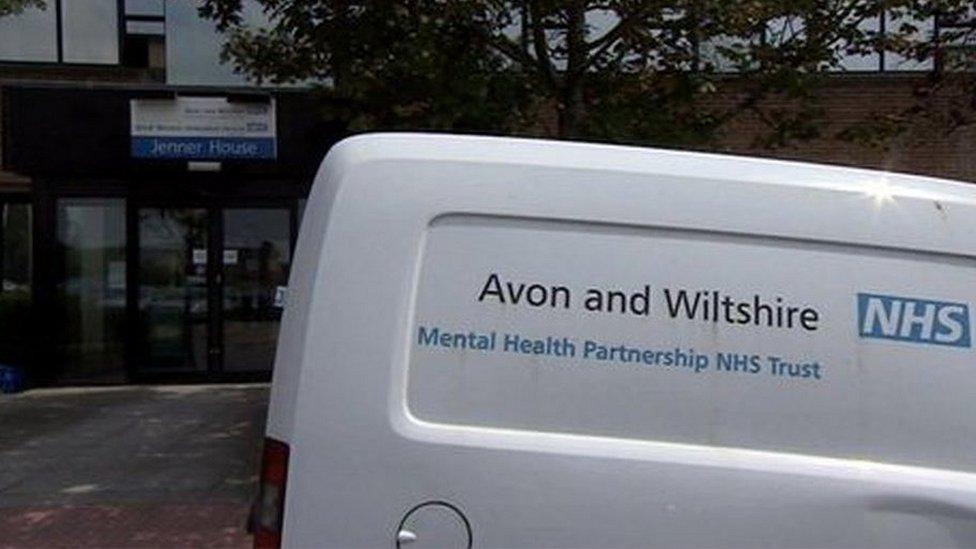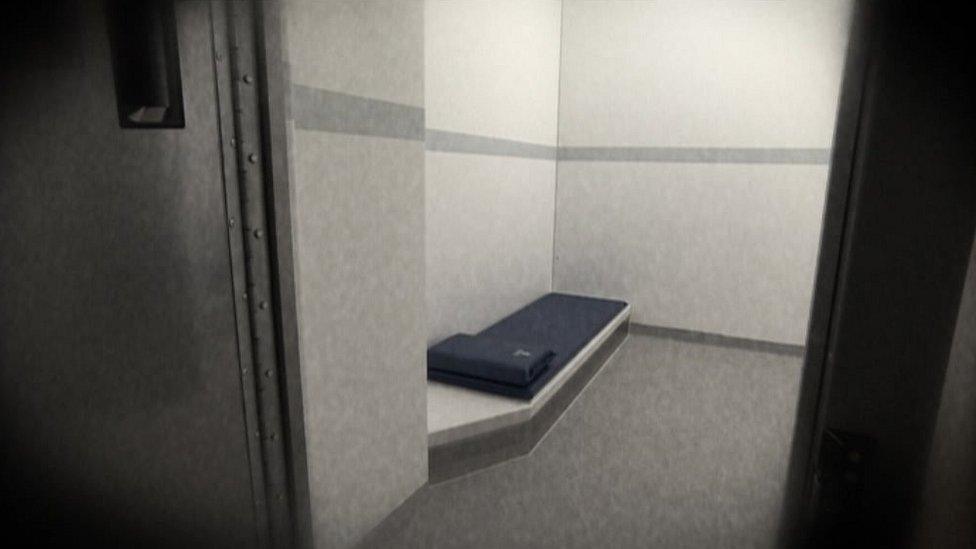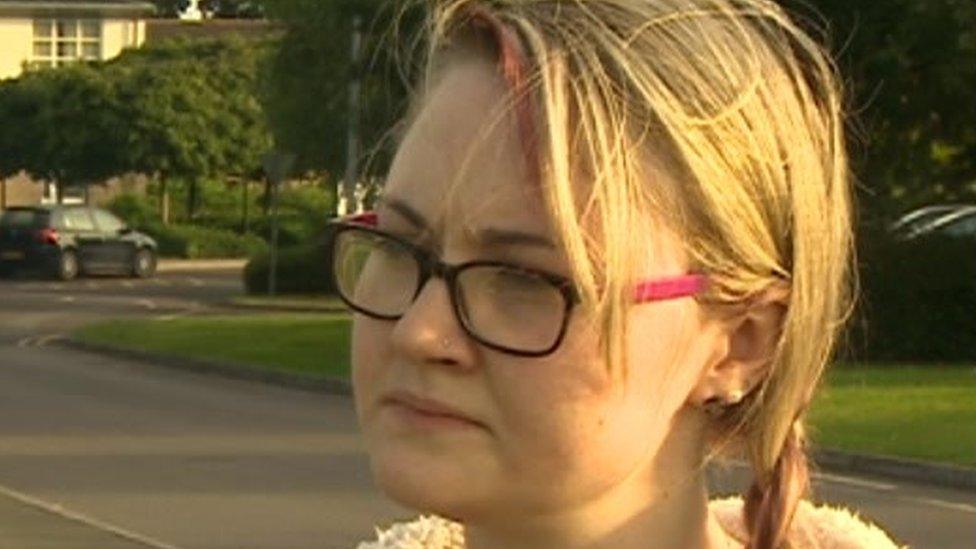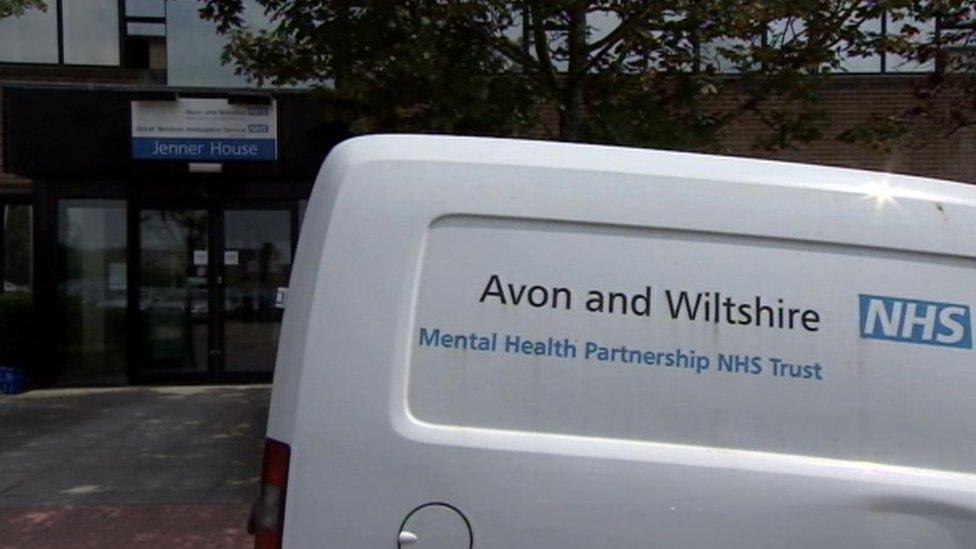Avon and Wiltshire mental health trust criticised for holding 'vulnerable patients' in police cells
- Published

The AWP provides mental health services across Bath and North East Somerset, Bristol, North Somerset, South Gloucestershire, Swindon and Wiltshire
A report into a mental health trust that "regularly" holds patients in police cells has been described as "damning".
The Care Quality Commission (CQC) has served a warning notice on Avon and Wiltshire Mental Health Partnership NHS Trust (AWP) due to "serious concerns" about its "places of safety services".
Inspectors found patients were being placed in police cells and regularly waiting over 12 hours for assessments.
The trust admitted there are "some areas" which it still needs to improve.
CQC inspectors visited the adult mental health service provider in May to check on progress after it was found the trust was not "always safe, effective, responsive or well led".
But in the latest report, external, described as "damning" by Karen Bennett-Wilson, head of inspection for the CQC's south region, the trust was criticised for using police cells as "places of safety" and for the "many" who had to wait for "two or three days" for assessment.
Currently, people detained under section 136 of the Mental Health Act 1983 can be held in a hospital or police station for up to 72 hours.
But the Home Office wants that time reduced to 24 hours, external and the use of police cells as a "place of safety for adults" to be restricted.

The report found that patients were "regularly taken to police cells" because of the lack of availability of beds
'Scariest thing'
Dr Paul Lelliott, the CQC's deputy chief inspector of hospitals, said: "When a person in a crisis who requires mental health care is detained by the police, they should be taken immediately to a properly staffed place of safety where they can be assessed by a mental healthcare professional.
"They should be taken to a police cell only in exceptional circumstances. We found that too often the designated places of safety managed by AWP were not available when needed. This must be addressed as a priority."
The trust said it was working with councils, commissioners and the police to "find solutions".
Carol Bowes, from AWP, said: "We need to do better on the leadership and we need to do better on some of the safe domains.
"But the CQC were very clear that they understand that the work we need to do around places of safety is not just our work."
The report comes less than a fortnight after a woman with mental health problems was held for 11 hours in a police cell then three hours in the back of a police car.
Katie Simpkins, 23, from Chippenham, said it had been "one of the scariest things" she had ever been through.
AWP later apologised and said the situation "was not ideal".
If the trust fails to comply with the CQC's warning notice, it could face further enforcement action.
- Published2 September 2016

- Published25 February 2016
